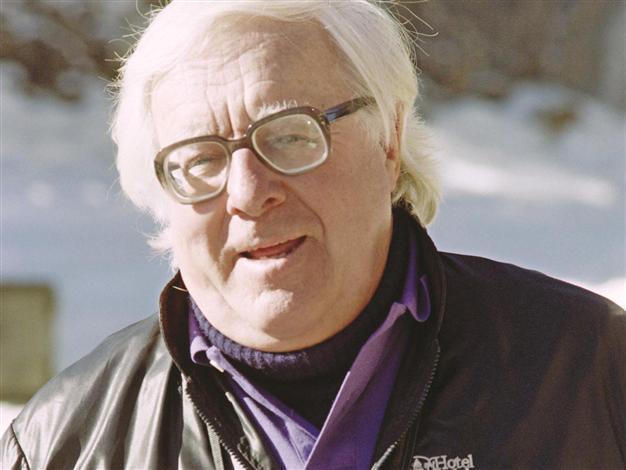Tributes to sci-fi writer Ray Bradbury, dead at 91
LOS ANGELES - Agence France-Presse

Writer Ray Bradbury died at age 91 after an unspecified ‘lengthy illness,’ according to his publisher. AFP Photo
Tributes poured on June 7 for science fiction writer Ray Bradbury, author of dystopian post-war classics including “Fahrenheit 451,” who died aged 91.Bradbury’s publisher HarperCollins confirmed his death yesterday in Los Angeles after an unspecified “lengthy illness,” as tributes poured in from fans and family alike for a man seen as one of the genre’s greatest authors.
President Barack Obama led praise for Bradbury, seen as one of the genre’s greatest authors, who died Tuesday in Los Angeles after an unspecified “lengthy illness” according to his publisher HarperCollins.
“His gift for storytelling reshaped our culture and expanded our world,” said Obama.”But Ray also understood that our imaginations could be used as a tool for better understanding, a vehicle for change, and an expression of our most cherished values.”
Director Steven Spielberg added: “He was my muse for the better part of my sci-fi career. He lives on through his legion of fans. In the world of science fiction and fantasy and imagination he is immortal.” In all, the award-winning writer penned nearly 600 short stories and 50 books, including 1950’s “The Martian Chronicles” about human attempts to colonize Mars and the unintended consequences.
Bradbury’s most famous work, 1953’s “Fahrenheit 451,” was a Cold War-era warning of the evils of censorship and thought control in a totalitarian state. It reached a worldwide audience as a film adapted by Francois Truffaut in 1966.
Before Bradbury, science fiction had mostly been published in pulp magazines. He helped bring modern science fiction into the literary mainstream. More than eight million copies of his books have been sold in 36 languages.
Ray Douglas Bradbury was born August 22, 1920. “Fahrenheit 451” was his only sci-fi book, he said, because it was a “depiction of the real” or of something that could actually happen in a totalitarian state.
Bradbury said the novel, named after the temperature at which printed books ignite, was not meant to be grim: “I wasn’t trying to predict the future. I was trying to prevent it.” “You don’t have to burn books to destroy a culture. Just get people to stop reading them,” he once said.
















